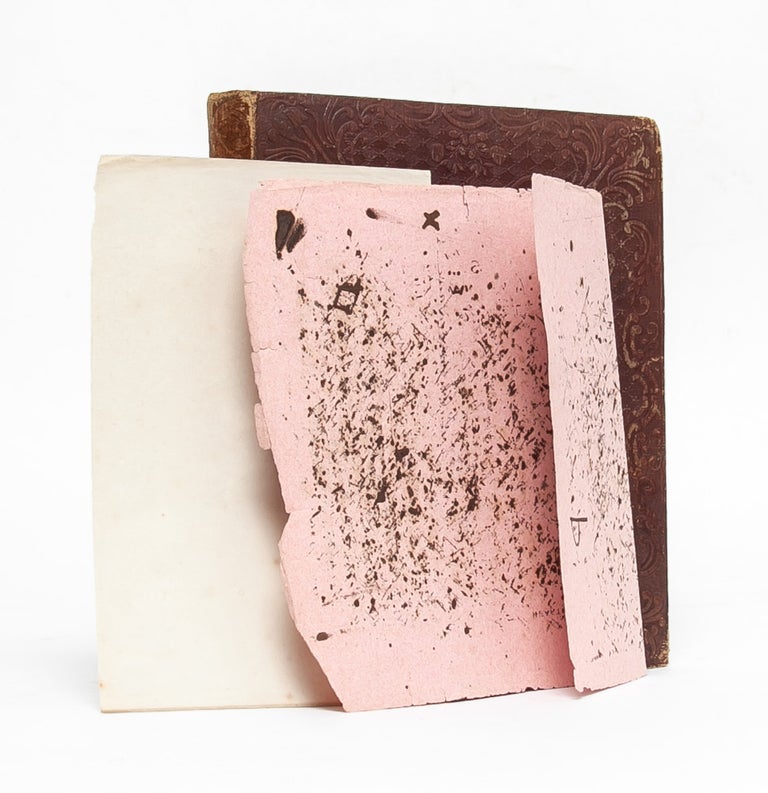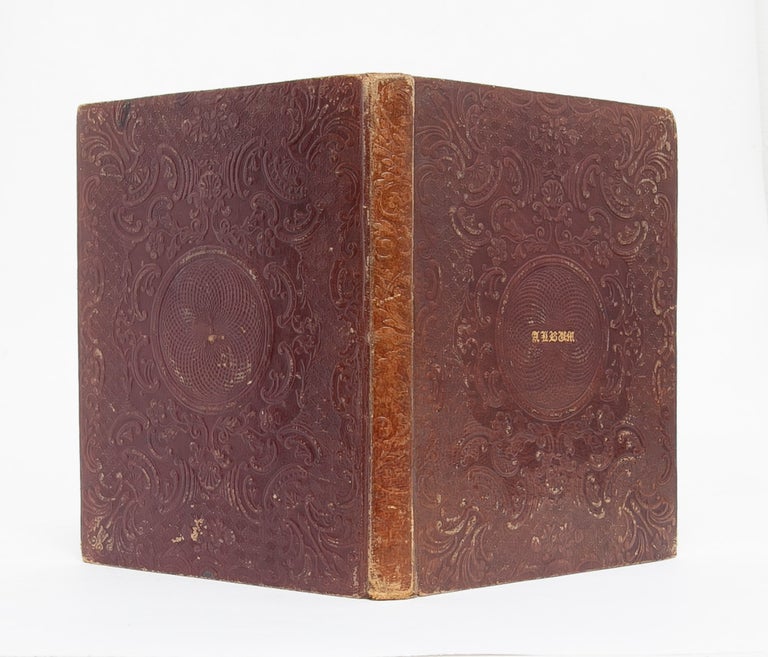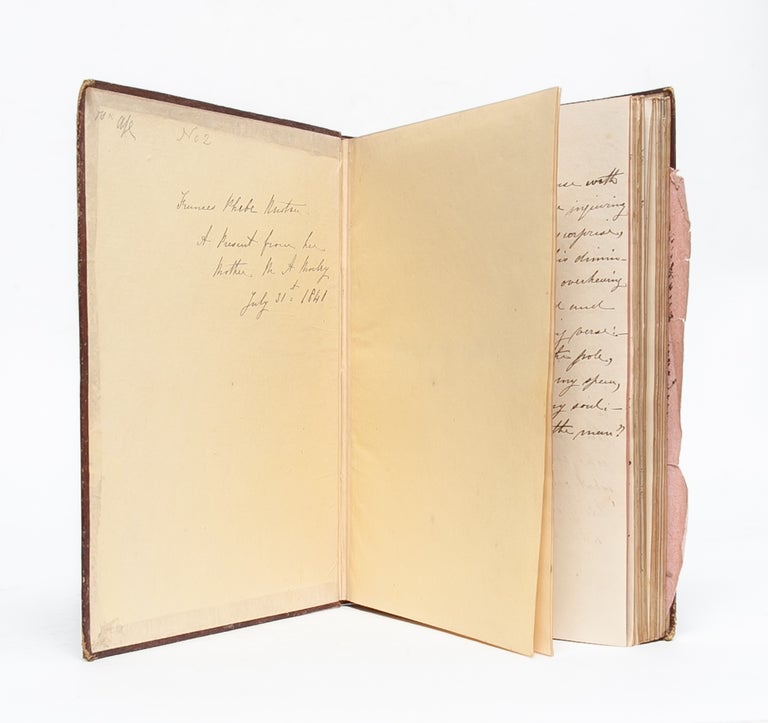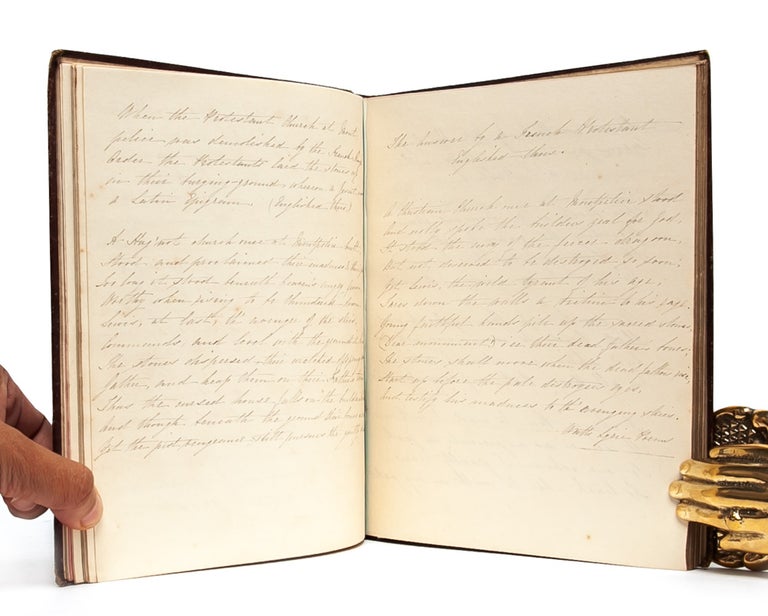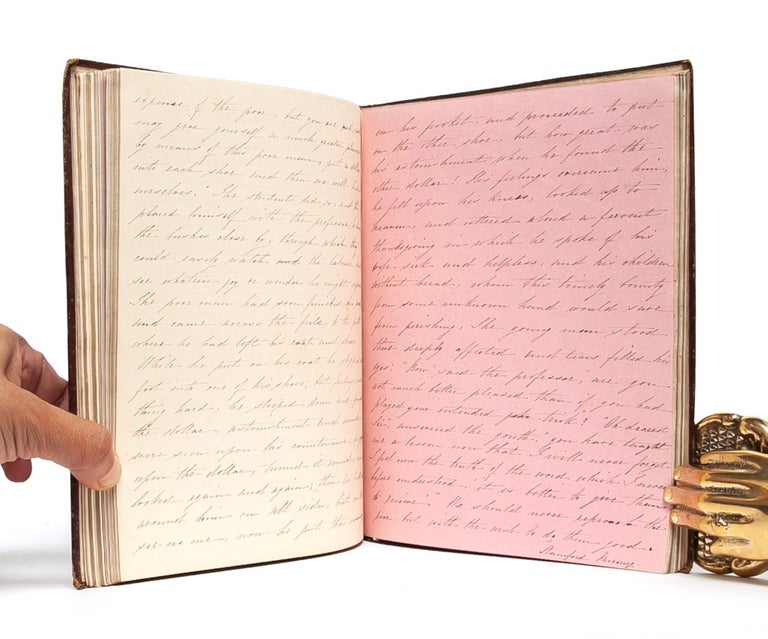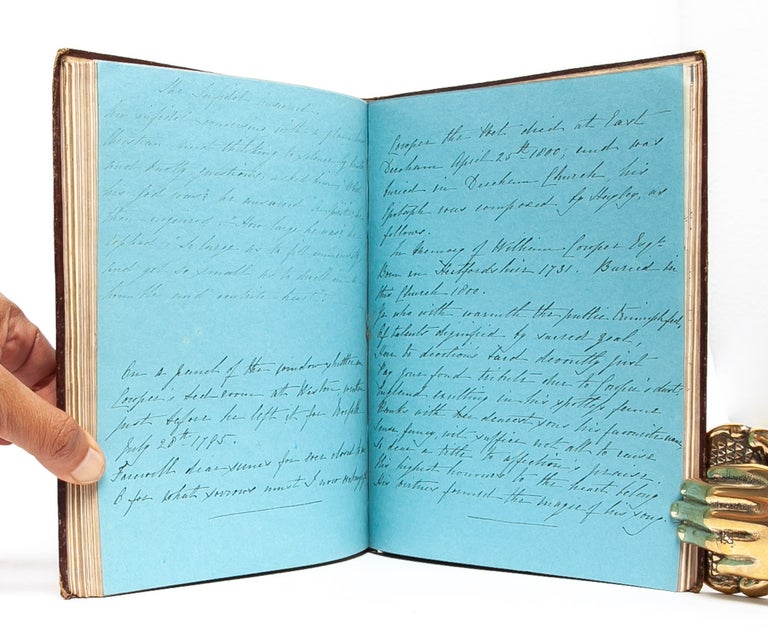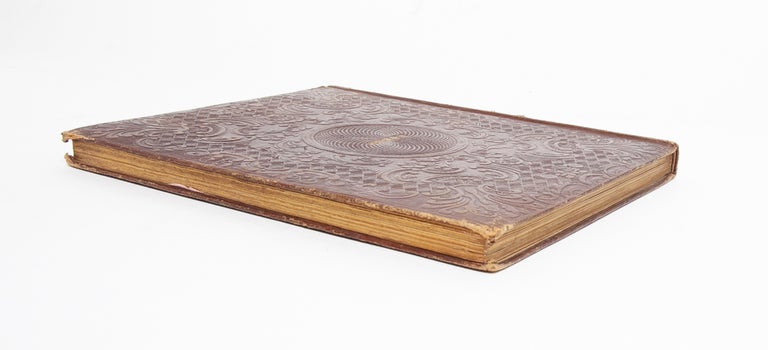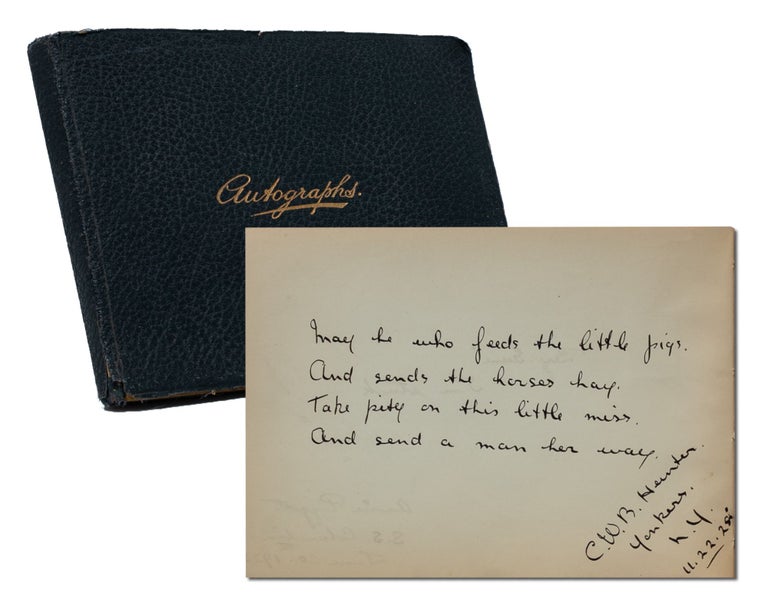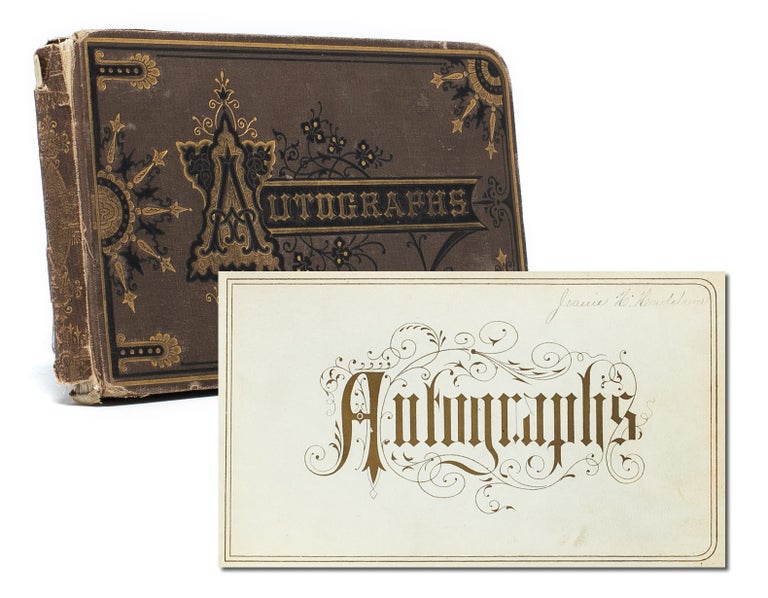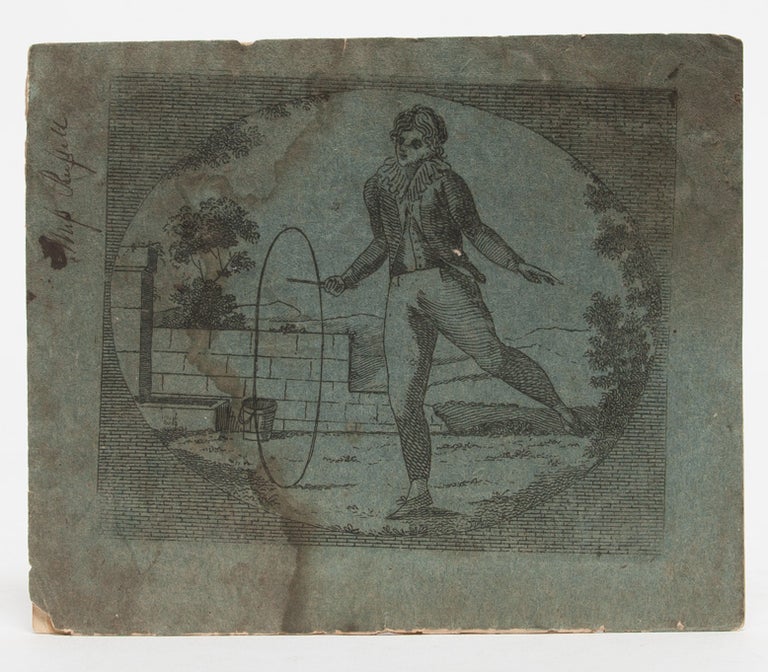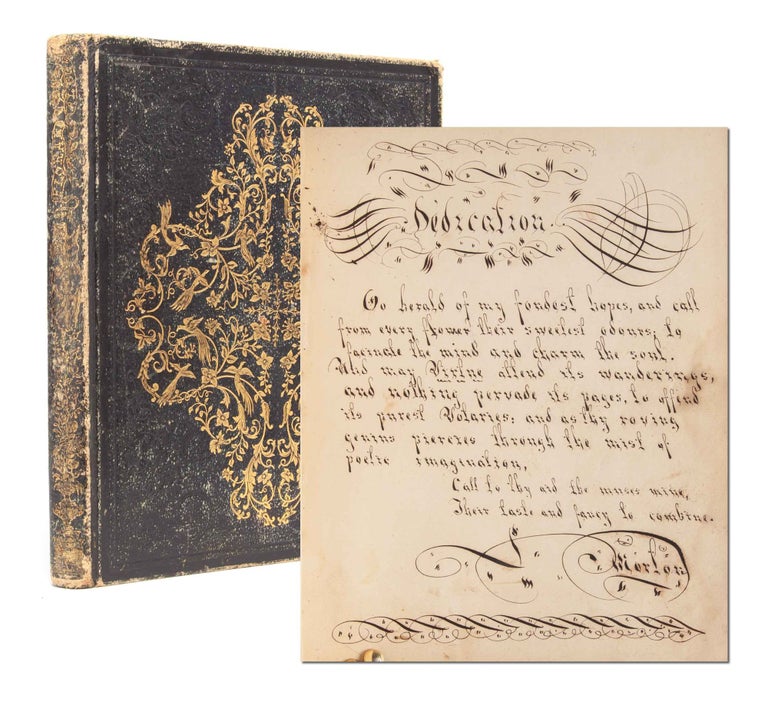Religious and literary commonplace book of a young woman
[England]: 1841-1867.
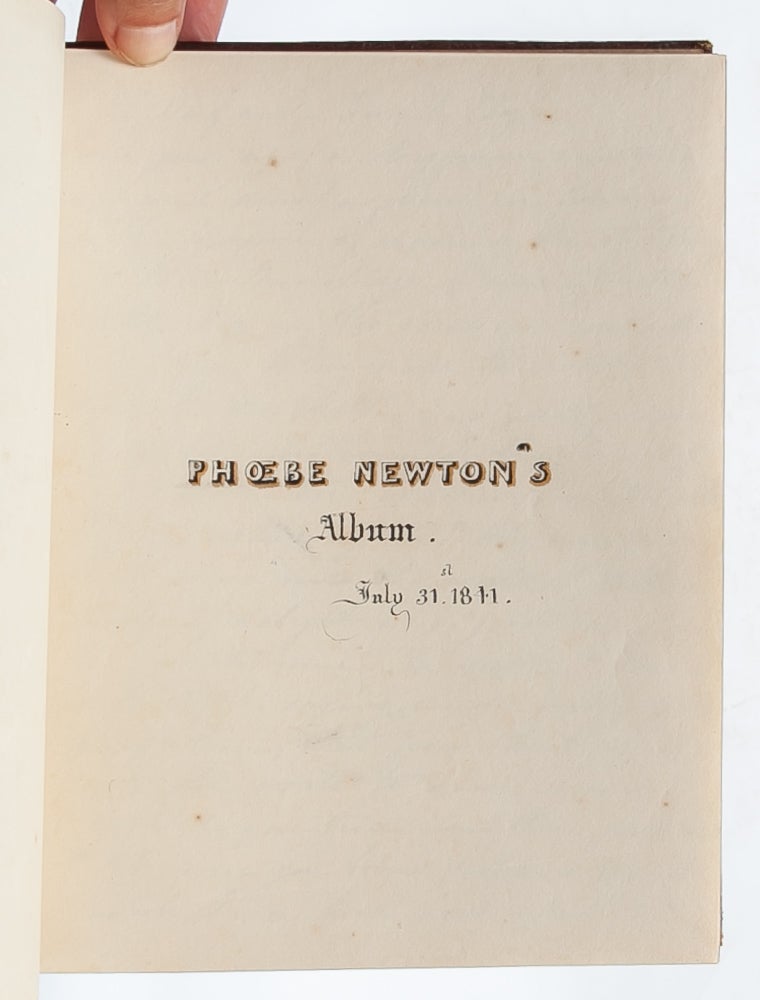

Religious and literary commonplace book of a young woman
[England]: 1841-1867. Full sheep embossed in blind with gilt to front board, measuring 200 x 160mm and comprised of 155 manuscript pages. A gift inscription to the front pastedown reads "Frances Phoebe Newton, A Present from her Mother, Mrs. A. Morley. July 31st, 1841." On the first page, Phoebe has created a formal title page: "Phoebe Newton's Album. July 31st, 1841." A dense and research-rich piece, in which a young woman documents her reading from a variety of sources including collections of poetry, popular magazines and circulars, church sermons, and oral stories within her community. Potential projects include but are not limited to Victorian reading practices, women's reading, the intersection of popular and evangelical literatures, genealogy, and paleaography.
Within her commonplace book, Phoebe gravitates toward poetry and short anecdotes in which the narrating voice calmly uses rhetoric and logic to undermine non-believers or convert doubters. Her faith is the underlying basis for each selection -- even when celebrating a royal marriage or waxing on Queen Victoria's leadership. Early selections such as Doctor Watts and Collins the Freethinker focus on how Christians unshaken in their faith can lead by calm example, responding to criticism or even outright scorn by gesturing to the value of their interior relationship to God rather than to any external possessions. Doctor Watts, for example, responds to a coffeehouse stranger's "contempt at his diminutive appearance" with a short verse concluding "I must be measured by my soul -- The mind's the standard of the man." Similarly, Collins the Freethinker "once met a plain countryman going to church" and attempted to confound him by asking about God's size. The countryman's participation in the dialogue -- and his embrace of contradiction -- impress and convert the Freethinker. "He is so great that the heaven of heaven cannot contain Him; and so little that He can dwell in my heart." In this sense, Phoebe reveals in addition to her evangelical beliefs an attraction to literary realism. Rather than gravitating to soaring sentimentalism and romance, the works gathered here often rely on dialogue and daily settings, presenting a realistic world with idealized social outcomes.
Phoebe's selections come from a variety of sources, which speaks to the array of material she had contact with. Some uncredited pieces appear to be stories from sermons or overheard among family. Many include Victorian writers such as Cowper and Toplady. Still others come from popular regional magazines such as the Norfolk Chronicle and the Gospel Standard. More work could be done to identify where she and her family resided and what schooling she had access to. Additional work could be done on at least one other hand in the book, several times signed John Newton and potentially her husband (given that her mother, Mrs. Morley, gifts her the book under the name Newton). (Item #5032)

